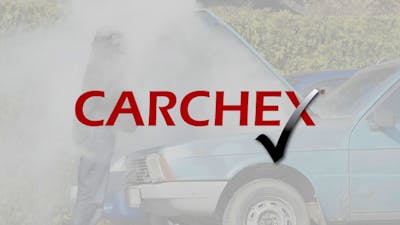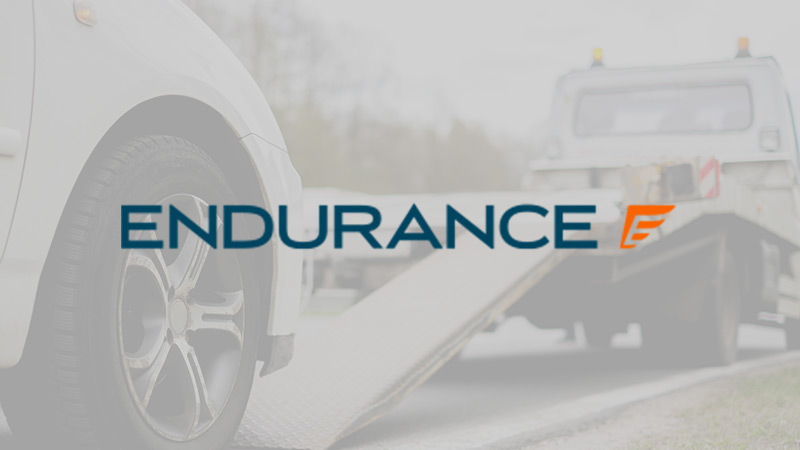Are Extended Car Warranties Worth It in 2024?
2023 was a very unusual year for vehicle ownership. The historic shortage of new vehicles has put pressure on the used car market, making a used vehicle more expensive and harder to find. Many top-selling models like the Ford Maverick, Toyota RAV4 Prime, and Subaru Outback are in such short supply that the wait can be years long. What does this all have to do with extended warranties on your used vehicle? It means that keeping your older vehicle running may not be a choice but a requirement. And it means that having a good extended warranty might be a very good idea for 2024.
Popular Warranty Providers
What is an Extended Warranty?
In our story, we refer to an extended warranty as a vehicle service contract or whatever legal-eagle term the beancounters throw at it. We all know what an extended warranty is. It’s a contract you purchase that says a third party will cover the costs in part or in full if you have an unexpected breakdown. Don't confuse an extended warranty with a pre-paid maintenance contract. The two are different animals.
Type of Extended Car Warranties
Extended warranty companies want to make it seem easy for you to buy one of their products. One way they do this is by advertising a whole bunch of different packages, often using the names of metals. For example, the Platinum package may cover pretty much everything, and the Bronze package only covers a short list of very limited things. In the comprehensive Extended Warranty guides we provide here at Car Talk, we usually steer our readers in one of two directions; First, buy a top-tier warranty so that if you have a breakdown, you can be assured of coverage. Or second, don’t buy one. Nobody wants to pay thousands of dollars to a warranty company only to find the $4,500 Fitzer valve is not covered by the policy they have purchased.
The companies that sell you these products also offer many ways to pay. You can pay up-front. You can finance the warranty (and pay more), or in some cases, the warranty companies only accept a monthly payment. Which is right for you is your decision to make. Bear in mind that nearly every extended warranty product has a deductible.
Your Responsibilities When Buying and Owning an Extended Warranty Package
Extended warranties have a lot of rules, regulations, code words, secret handshakes, exclusions, inclusions, and regulations. Your first responsibility as a shopper and buyer of an extended warranty is to read the entire contract and fully understand it. If you cannot do this, don’t buy one.
There are a few major rules that these companies stick to without any leeway. First, if your car already has a problem, say a wheel bearing in need of replacement that might cost $700, your new contract will not cover it. Pre-existing problems are not covered by a new contract. This is to prevent fraud. Imagine that you find a month-to-month warranty costing $150 each month. You figure, “I’ll buy it for one month, and let these suckers fix all my problems, then cancel.” You are not the first to think that scheme up, and warranty companies have multiple ways to protect themselves from this type of fraud.
The second rule is that you must have every work receipt in your possession for every maintenance requirement the manufacturer specified from the day the vehicle hit the road until today. If the vehicle was not properly maintained, or if you do not possess all of the receipts, there is no need to bother buying a contract because the company will not cover you later if you need work done. Read over the complaints against extended warranty companies, and you quickly realize that 90% of the refusals are due to a lack of proof of proper maintenance.
The last rule is that you need to pay up. If you stop paying for your contract and then have a breakdown, you are out of luck. This may seem obvious, but the month-to-month contract companies are pretty smart. If your nine-year-old Beemer is getting on in miles and you miss a monthly payment, don’t be shocked if the company opts out of covering you anymore.
Finally, there comes a time when these contracts simply no longer make sense. Most have a mileage and age limit at which they stop. Some don’t, but your vehicle’s value eventually approaches zero. Be smart about owning a used car. They have a finite lifespan. Understand that at some point you will need to bite the bullet and move on. Paying for a repair contract on a car with a value under $3,000 makes no sense.
Why Buy An Extended Warranty
There are a few reasons why a vehicle owner may wish to buy an extended warranty. The first reason is that you are in a financial situation where a large vehicle repair bill will upset your household finances and put you in a situation where you cannot pay for the repairs. However, you can live week to week or month to month on a budget. Therefore, an extended warranty helps to keep you in a vehicle that gets you to work every day as you pull yourself up to a better financial situation.
The second reason is a bit more obscure. You may own a vehicle that you love and wish to keep for a long time. However, that particular model has a poor reliability history. In this case, buying the warranty allows you to hedge against the likely repairs you will need to pay for. You are betting against the house here. Extended warranty companies know which cars cost the most to repair and sometimes simply exclude them. They then charge so much for the others there is little likelihood that you will ever get as much money back from covered repairs as you pay in premiums.
The third reason is one we wish we could talk every car owner out of. Imagine that you just bought a new or a used car from a dealer. After days, weeks, or even months of educating yourself online about your ideal choice, you finally pull the trigger. The dealership experience is long and exhausting. There are many emotions. The dealer employs a person who knows exactly how to play on your emotions, one of which is to protect this new vehicle from any harm. They offer a solution. “Buy an extended warranty contract and never worry about repair bills again!” The worst thing about this type of buy is there is no hurry. You can buy that contract later after finding the best price or deciding if you really need it. Please resist this impulse buy.
Pros and Cons of Extended Warranties
The pros and cons of an extended warranty can be boiled down to a few bullets.
- Extended warranty helps you pay for unexpected repairs
- Extended warranty helps when selling a used car if the warranty is transferable
- Will very likely cost you more than you get out of it
- May not pay for the repair you need
Manufacturer Warranty vs. Third Party
There are two types of extended warranties. The first is one that is offered by the manufacturer of your vehicle. You may buy it at the dealership or online, but either way, the warranty and the work are backed by the automaker and typically done by the authorized dealer network using mostly OEM parts. These are the best warranties, but they have two limitations. They are often the shortest in duration, and you often need to buy them before the new car warranty period ends.
The second type of extended warranty is one offered by a third-party warranty company. These are the ones you need to research the most before buying. Some are highly rated and have many positive testimonials from happy contract holders. Others have a warning at the Better Business Bureau and thousands of posts by contract holders who feel they got ripped off. Always better to go with the former when you're deciding which to buy.
Read more on the Best Extended Warranty Companies in the industry here.
Common Repair Costs
All cars, even the most reliable cars, will need repairs. Some are minor, like reattaching a loose heat shield. Some are major, like a blown transmission. Some are very common, like a wheel bearing or starter motor. Others are obscure, like a differential replacement. Either way, we always suggest to our readers that a comprehensive contract covering the most common work is the one we recommend. If you buy the lowest cost, lowest tier warranty, the chances are your car will break and the repairs will not be covered.
We created this list below of actual prices paid by owners of common mainstream vehicles for various vehicle repairs. As you can see, some repairs are real budget-busters.
| Problem / Repair | Cost | Vehicle Make and Model |
|---|
Extended Warranty Costs
With many extended warranty policies, the amount you pay depends on the particular vehicle, its age and mileage, and the level of coverage you select. Here are some examples we found online that show you the range of prices one might pay. As you can see, these prices are fixed and cover the vehicle for a certain duration. CarShield offers pricing in a different way. It charges by the month, and the policy is in effect as long as you keep paying. When we obtained prices they were all the same, regardless of the vehicle. CarShield offered its contracts at $129.99. You should check the prices yourself to ensure they apply to you. We did the math and found that CarShield is at the higher end of the price range for extended warranty policies.
| Vehicle* | Term* | Total Cost | Deductible** |
|---|
Is an Extended Warranty Worth It In 2024?
2024 is a very good year in which to consider an extended warranty for your vehicle. With inflation rapidly rising, the cost to repair a vehicle is going up by as much as double-digit percentages each year. Also, with parts in short supply, the prices to do one’s own repair are going up and getting more difficult.
Since dealers are adding five or even six-figure markups to the MSRP of popular models, even if you can find a new car to buy, you are making a terrible financial move by buying in a year when shortages mean higher than sticker prices. Therefore, protecting your current car with an extended warranty policy makes more sense in 2024 than it did back in 2019.
If your existing vehicle is still covered under your new car warranty (usually three years or 36,000 miles in duration), now is a good time to shop for an extended warranty because the manufacturer-branded extended warranty will be available to you.
We suggest shopping around by phone in 2024 when considering an extended warranty for your vehicle. The price for an extended warranty from one’s vehicle manufacturer can vary from dealership to dealership. When we phoned Lexus and Toyota dealers to obtain prices, we found a difference of hundreds of dollars from one dealer to the next.
Another consideration is to buy a newer used car. At the time of this publication, the used car market is starting to soften up considerably. The Tesla Model 3 has seen an approximately $16,000 drop in used car average prices over the past 12 months, according to iSeeCars.
When shopping for any used car, always consider a certified pre-owned model sold by an authorized branded dealership. CPO cars, as they are called, come with a warranty included. You may pay a bit more for a CPO car as opposed to another used car, but the warranty is administered by the automaker and is as good as a new vehicle warranty.
Car Talk believes that the shortages of new and used vehicles point toward keeping one’s current vehicle until things settle down. An extended warranty can help you bridge the gap in time until the vehicle retail market settles down and you can find a fair deal on a new ride.
Read more on the topic of the Best Extended Warranties here.










